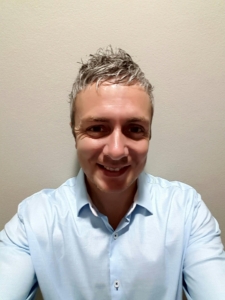The 2018 International Mental Health Conference is on next week over the 8th – 10th August at the RACV Royal Pines on the Gold Coast, Queensland.
This annual conference is now in its 19th year and continues to be the pinnacle event in the mental health industry. The Conference provides an invaluable opportunity to build relationships and to share knowledge, research and latest policies.
Mr Daniel Raffell , National Program Manager from Smart Recovery Australia joins us at the conference to discuss ‘SMART Recovery: Reducing impacts of problematic behaviour through self-management/mutual aid'.
Abstract
Addictive behaviour is becoming increasingly more common especially in populations experiencing mental health issues. With this in mind, evidence-based interventions to respond to these issues are essential. SMART Recovery is a free self-management, mutual-aid program that equip individuals with the practical skills and support they need to make significant changes. Focusing on CBT principles around people’s thinking and behaviour rather than the substance. SMART was borne out of an increasing demand for alternatives to traditional 12-step philosophies and is growing in popularity. SMART does not see addictive behaviour as a disease but a maladaptive behavioural that can be changed.

Mr Daniel Raffell
There are over 260 SMART groups running weekly in Australia and over 1500 individuals are equipped weekly with the skills and tools they need to make significant changes. The model is present in 23 different countries and growing. SMART groups are not limited to alcohol or drugs but any problematic behaviour and a vast majority experiencing co-morbid issues. Not only is SMART proving to be effective within the general population it can also be adapted for other populations including indigenous. youth and forensic.
The strength of the SMART is the mutual-aid, self-management aspect of the groups. SMART believe that participants have the answers within themselves to make changes and they are the experts in their own lives and recovery journey. Research shows that intrinsic motivation is key to changing behaviour and is more likely to succeed if client driven. SMART has shown great efficacy and growing in evidence in providing responses to addiction and dual diagnosis.
SMART Recovery is extremely collaborative in essence as the partnerships needed to train others to develop and run further groups are fundamental. The SMART Recovery worldwide model of behavioural change with increasing evidence base is continuing to grow exponentially.
Biography
Dan is the National Program Manager with SMART Recovery Australia. Originally from Scotland, Dan has many years of experience in addiction, mental health and homeless sectors.
Dan’s qualifications include an Honours Degree in Addiction, Diplomas in Counselling and CBT and Certificates in Mental Health.
His passion is to see people gain more control over their lives. He strongly believes those seeking recovery are the experts and his desire is to see participants equipped with the necessary tools and strategies to live more balanced and fulfilled lives. This has been validated through his own lived experience of mental health and addiction.
For further information on the 19th International Mental Health Conference and to secure your spot please visit anzmh.asn.au/conference